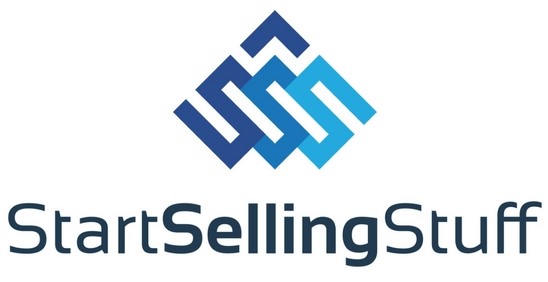I was first introduced to James Holt over a year ago when he contacted me for a project that he was working on at the time. Then, when we both started doubling down on Twitter (at the beginning of 2018) we became online buddies, meeting up in person for the first time in Budapest this summer.
In case you don’t know, James is a highly successful entrepreneur who has mastered various different forms of online business including dropshipping, personal branding and niche sites. His story is incredibly inspiring for anyone looking to enjoy the freedom and fulfilment that making money online brings with it.
In this interview we go deep into every aspect of online biz—the different models available, how to choose the right one for you, how to maintain the right mindset, and how to keep your ‘creative’ ambitions separate from your money-making drive.
It’s a fairly long interview, but it’s also a goldmine of practical information and insights that will massively help you if you are an entrepreneur, or looking to dive into online business for the first time.
Enjoy!
1.The ambition of this website is to teach guys how to live the lives that want, not the lives they think they should. In practice that means two things – getting their dating sorted, and getting their business / financial lives sorted too. As far as latter is concerned, you’ve been incredibly successful by the age of 19, making money from niche sites, then dropshipping, and latterly personal branding, with more projects coming up next year. Care to give readers an overview of your career so far?
I started trying to make money online in the summer of 2015.
At the time, I’d just got my first girlfriend (at the age of 16) and had gone from somewhat socially awkward to a confident & cool guy in high school.
Life was good…until I got bored.
Online biz became my new obsession and has stayed that ever since then.
I started with blogging, found my first successes with niche sites and started making a decent income for a teenager.
Kinda stagnated at the $3-5k level so I looked to paid traffic to scale my business.
Dropshipping was my first successful attempt at paid traffic. Before that, I’d lost money on every ad campaign I launched.
Even now, I’m only just starting to see an ROI from Facebook and Google ads for my personal brand.
Luckily, the organic growth on Twitter has made up for my lack of success in that area and built a solid foundation for my personal brand which is currently my main focus.
Easily cleared 6-figures in 2018 while going to school / working full-time.
Goal is to scale the Start Selling Stuff brand to 7-figures in 2018 so that’s where I’m spending most of my time.
2 Many guys love the idea of online business and the freedom and money it can provide, but they are unsure of which business model to try. Having been successful with several, what advice would you give?
I’ve been successful with niche sites (affiliate marketing), dropshipping and personal branding. (Made a couple of hundred dollars from freelancing too)
All of those business models (and many more) obviously work.
As for which is best, I think it largely depends on the person.
How much money do you have to invest?
Do you need to make money ASAP or can you afford to wait 6 months for money to start coming in?
Are you a good writer?
Are you more interested in SEO or paid advertising?
Are you looking to scale quickly or build online assets that generate passive income?
Do you have lots of experience in one of the big 3 markets (health, wealth, relationships) that you’d like to teach others?
If you can answer those questions for yourself, then choosing the right business model becomes a whole lot easier.
What you don’t want to do is simply jumping into dropshipping because I teach it or personal branding because Troy teaches it.
I get a lot of people who come to me wanting to start dropshipping and I simply tell them I don’t think it’s the right choice for them.
Prime example? None other than Mr Troy Francis.
A great (and prolific) writer who knows how to build websites – Niche sites are a perfect fit for him and I have no issue dissuading him from getting into dropshipping for that reason.
(We had this exact conversation when we met in Budapest last summer.)
3. Following on from that, to what extent should one go with their gut, either when choosing a niche or a particular business model? Some say you should only do things you’re passionate about, while others say, (effectively) ‘screw that, follow the money’. I personally got into blogging originally because I love money, nut in hindsight there were more profitable things I could have done. Any thoughts?
Different strokes for different folks.
I personally follow the money – always have done.
At the same time, I don’t work on businesses that I’m not excited about just to make money.
The exception being freelancing which I gave up quickly as soon as my first niche site started making money.
I guess I’m lucky in the sense that any business model that I believe will make me more money automatically excites me.
I’m heavily motivated by money.
Not because of the things money buys…
And not because of the freedom it offers either.
I just see it as a game.
And working towards increasing my income has always been incredibly exciting to me.
My lifestyle would be almost identical if I didn’t make a cent online. But my life would be incredibly boring because I’d lack a goal to work towards if that makes sense.
Enough about me, let me give some advice…
I honestly think you can mix the two (following money & passion) quite well.
For example, if I were giving advice to a younger Troy, I’d tell you to start blogging by all means, but also create niche sites on the side.
The niche sites would be 100% focused on making money. Your blog, on the other hand, you could build up just like you have done mixing artistic interests with business interests.
Side note: Having met Troy, I don’t believe his self-assessment that he got into blogging for the money. He’s a writer at heart which shines through in his content & occasionally leads to us having diametrically opposed views (the artist vs the businessman)
4. We both use social media (Twitter in particular) prodigiously to promote our brands. For someone new coming into the game, what advice would you give on selecting which social channels to use? It seems to me that, while you can grow a big audience and income on Twitter alone, there’s a disadvantage in that your content there is relatively disposable, unlike with say YouTube or even Medium.
You can spend a lot of time pondering which platform makes most sense for you.
I generally think that’s a waste of time because, especially as a beginner, you simply don’t know where you could do well.
Instead, I recommend you start posting on 2-3 different platforms and see which ones take off.
For my own personal brand, I wasn’t expecting to become “the dropshipping guy” on Twitter.
I used to post on YouTube and Instagram daily in addition to my Tweets. As time went by, I realized Twitter was where my message was resonating and my growth was picking up steam. Only at that point, did I double down on Twitter and let the other platforms sit on the sidelines.
Just to be clear, there’s absolutely value in focusing most of your efforts on just 1-2 platforms.
In fact, that’s exactly what I recommend you do. I’m just saying that in the early stages (first month), you need to figure out the best platform before focusing all your energy on one place.
No point in doubling down if you have no idea what the right move is.
5. You have said elsewhere that you are fascinated with money and business, and that really shines through. But what would you say your core motivation is? Money, freedom, not having a boss, creating something from nothing, or a combination or all of those things?
I chase money to avoid boredom.
It’s all a game to me honestly. I rationalize that this is improving my future (and by god it is), but the real reason I do all this work is because I love the challenge.
School always came easy to me.
I struggled with fitness – Got that somewhat sorted at 13/14.
Struggled socially – Got that sorted at 14/15.
Struggled with girls after I already had social skills – Got that (kinda) sorted at 16/17
All these areas of self-improvement have diminishing returns which is probably why I go through phases of obsession and then maintenance.
Chasing money is the longest phase I’ve had so far and I’m making lifestyle choices to ensure that this phase doesn’t end until I’m financially set for life.
For example, I’m not moving to a massive, transient city where there’s a very real chance I’d get into chasing chicks and that obsession would replace my business obsession.
6. I have gone big on personal branding (in particular with my course Personal Brand Mastery) – it suits my personality, I love creating content etc. Plus it seems to me that having an audience of people who know, like and trust you will help you sell more of anything, regardless of your business / sector. Others, however, disagree, and say a personal brand is not necessary and you can make more simply running paid traffic for good offers.For me a personal brand feels more sustainable, but what are your thoughts?
A personal brand is definitely more stable than running paid traffic for affiliate offers / dropshipping products.
That doesn’t necessarily make it a better business model – Again, different strokes for different folks.
A dropshipper I met up with this summer put it perfectly: Does it matter whether you make $3k every month or $36k in one month and then nothing for the rest of the year?
To many of you, the answer is obvious…
Yes, of course it matters!
But not to my friend – He isn’t bothered by the massive ups and downs that paid traffic brings with it.
Personally, I couldn’t stomach that. I don’t mind losing money, but the idea of working 11 months out of the year without making any money is painful to me.
Of course, that isn’t the case for all dropshippers. What my pal does is an extreme type of “go big or go home” dropshipping.
7. You are currently doing a year’s mandatory civil service in Switzerland, and then you’ve said you’ll be going to college to study business. We’ve discussed this already, as of course there is currently this ‘anti-school’ sentiment in the sphere.Personally I am in favour of school as long as someone doesn’t go ridiculously into debt.If someone reading this is currently weighing up the pros and cons of school, what advice would you give?
My advice would be to weight the pros and cons for YOUR specific situation.
Disregard what others are saying.
Disregard statistics about the average college debt / employment situation post-graduation.
Averages simply aren’t relevant because you (hopefully) aren’t aiming to be an average student.
I think college gets a bad reputation because immature 18-year-olds are sold the idea that they can go fuck around, stumble from one drunken weekend to the next and then after 4 years, magically have a high-paying job waiting for them.
Nothing could be further from the truth, of course.
However, the problem isn’t JUST colleges.
If you told every 18-year-old to get into online business, learn a trade or do whatever else is in-vogue in the Twitter sphere this week, most would still find a way to screw it up.
You need to take responsibility for your life.
Realize that whether you go to college or not, you need to be learning outside of school.
You need to be working on building valuable skills and a powerful network. College can help or hinder you in doing that.
For me personally, I decided university is worth a shot.
Worst case, I lost a year where I could have gotten laid more by living in a capital city, met a few more entrepreneurs & worked more on my business.
Best case, I end up going to university for 1-3 years and meet a handful of people who will become close friends, tons of soft-touch contacts for the future. I’ll also probably gain insight into the world of big business from experienced professors.
That’s a bet I’ll happily take.
But keep in mind, that’s just my personal situation – It doesn’t mean it’s the best choice for anyone else.
8. How about for people who are further along in their careers? For guys who are in the proverbial 9-5 ‘cubicle’ (as I was) there’s always a decision to be made about when to make the jump to self-employment. Ideally you’d have a side-hustle and wait until you’ve equalled your salary with it, but on the other hand ‘sink or swim’ is a great motivator. What are your thoughts?
I’m not a fan of the ‘sink or swim’ approach.
I believe if you aren’t capable of putting in the extra hours required while working your job, you don’t want the freedom bad enough.
It’s easy to blame your job for your lack of online income. Actually getting up every morning to work on your business when you don’t have a boss telling you what to do is a lot harder.
Also, there’s a very real chance you’ll fall into the trap of pursuing only short-term business models because you are forced to make money ASAP.
I’ve been fortunate enough to not actually need the money from my businesses. This allowed me to take more risks which is one of the reasons I’ve been able to grow my income exponentially.
Good luck taking this kind of risk when you don’t have enough money to feed yourself for the next 2 weeks.
9. Going back to marketing, you have of course made great progress on Twitter, hitting over 10k followers within a year. What advice would you give to guys new to the platform? How do you add followers quickly? And how do you avoid getting sucked down into negativity, trolls etc?
Stick to just 1 subset of a topic at first and become the go-to guy for your little niche.
I’ve got experience with a handful of different online business models. However, when I was getting started on Twitter, I posted almost exclusively about dropshipping.
Not because dropshipping is the best model or because it has made me the most money (it hasn’t).
Simply because that’s the niche I chose for my personal brand.
In the early stages, it’s best to post highly actionable content focused around your niche. Leave the motivation fluff to more established guys like myself and Troy 😉
But seriously, nobody gives a shit when someone with 100 followers post a motivation message. At 5k followers, that would be a different story…
Not saying it’s logical, but that’s how Twitter works.
Moving on, you have to be real & authentic.
Don’t pretend to be more experienced than you really are. People can see through the act easily. Plus, following a beginner or intermediate journey is actually interesting if you do it right.
And have a sense of humor.
Inject your personality into your Tweets. Don’t become another self-improvement robot who Tweets the same tired clichés we’ve all seen a hundred times before.
As for dealing with negativity, I honestly think it largely comes down to not being insecure.
There’s no way I could run my personal brand the way I do 5 years ago. Leaving aside the lack of business experience back then, I was simply too insecure to stick to my guns and stand by what I believe in.
I’m personally not a fan of blocking people. (Don’t think I’ve ever blocked anyone.)
When I come across negativity, I just accept it and move on with my day.
Occasionally it gets to me, but most of the time the insults are just silly and bounce right off me.
I think people recognize that about me too so maybe that’s why I get less hate than other Twitter gurus.
Ironic, since I’m such an easy target being a 19-year-old kid with a bloody cartoon avatar after all.
10. If someone said to you, right, I’m going to give myself a year and I want to be making 6 figures by the end of it via online business, what should they do? As a side point, do you think some people are born entrepreneurs while some aren’t? Or can it be acquired?
Freelance copywriting is probably the safest way to reach 6-figures online in a year.
Learn copywriting, start applying for jobs on Upwork, build up a reputation, keep improving your skills and gradually raise your rates over time.
As for whether people are born entrepreneurs…
I don’t know, Troy. You’re asking some tough questions for a 19-year-old kid to answer!
I certainly always showed the signs of becoming an entrepreneur.
I’ve always been fascinated by money. Loved counting my money as a kid. My favourite game was Monopoly.
I was following the stock market during the crash of 08…at the age of 9/10.
So I guess I’d be the perfect example of someone who was born to do this stuff, but that’s not to say you can’t pick it up later in life and do well.
11. Looking to the future, do you have a plan, or an outline of where things will go for you? I get the sense that while you love online business, you are not exclusively tied to it—that is, you would also consider more traditional models as well. Is that correct?
I don’t have a concrete plan for the future.
I want to become rich in the next 5-10 years (multi-million dollar net worth).
The real question is whether the money-making game will still fascinate me at that point or whether I move on to other pursuits / enjoying the fruits of my labour.
I don’t see myself quitting business altogether, but once you’re financially set, there’s a big difference between working 10-20 hours per week just for fun vs swinging for the fences.
I used to want to become a banker and could actually imagine myself running my own investment fund (investing in private companies). That’s the only company with billion-dollar potential I’ve even imagined myself starting.
12. Finally, I really liked a Tweet of yours where you said something like ‘there’s no point in being a poor artistic type.’ By which I think you meant, yes, be artistic, but make money first. Then you can sit around writing your novel afterwards. For people like me where there can be a conflict between the ‘art’ and the ‘business’, what advice would you give?
I think trying to make money from your artistic pursuits is a stupid move.
Incredibly high failure rate and even those who succeed often end up commercializing their art to make money.
I think it makes far more sense to focus on making money and have an artistic pursuit on the side.
That way, you’ll probably end up making more money and you’ll never have to compromise your art.
Take my Twitter as an example…
I post some generic, motivational fluff on there these days. (Don’t even get me started on the crap I post on Instagram.)
That’s not necessarily the type of content I like.
But I’m running a business so my taste matters fuck-all.
What matters is what people respond to because the objective of my social media accounts is to get people’s attention, so they sign up for my email list.
My email subs then get lessons I’ve learned from my 3+ years of experience. From the email list, the goal is to get people to buy a product of mine.
The product contains nothing but 100% actionable advice which will get people to their goals.
Not saying that is the only way to run an info-product business, but it has worked incredibly well for me and a handful of other guys I’ve seen do it effectively.
Point is, I’m happy posting content to grow my business, even if it isn’t exactly the type of content I personally see the most value in.
Do be sure to check out James’s website Start Selling Stuff – it’s packed full of great, actionable information about all areas of online business. You can also find James on Twitter.







Interesting interview Troy…. surprised he’s doing a year’s mandatory civil service in Switzerland… from his YouTube videos he sounds Scottish.
Cheers man. Yes, James is currently based in Switzerland. Cheers, Troy